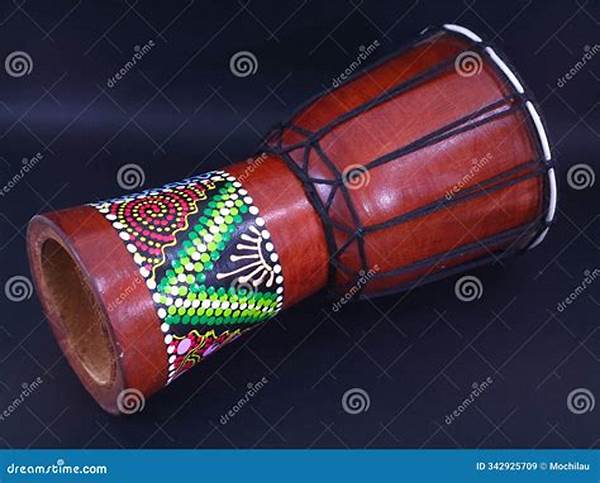Step into the enchanting world of Papua tribal dances, where every beat of the tifa drum echoes the heartbeats of a community rich in tradition and vibrancy. The tifa, an iconic Indonesian traditional music instrument, doesn’t just make music; it tells tales of the past, embodies the spirit of the present, and dreams of the future. Imagine attending a tribal dance in Papua, where the sound of the tifa captivates even the most restless souls, encouraging them to sway in harmony with the enchanting rhythm of life.
Read More : Review Of Double Bass Instruments For International Symphony Orchestras
What makes the tifa irresistibly unique is not just its mesmerizing sound but its role as a cultural bridge connecting the people of Papua with their ancestral lineage. Whether you are a cultural enthusiast, a travel aficionado, or just someone who loves a good story woven into music, you’ll find the tifa an indelible experience. But wait, there’s more! Isn’t it about time you discovered how this fascinating instrument complements these spellbinding tribal dances, creating a spectacle that should be on every bucket list?
The Unforgettable Sound of Tifa
The magic that emanates from the tifa during Papua tribal dances can’t just be explained; it must be experienced. As an Indonesian musical treasure, the tifa has found its rhythm deeply integrated into the cultural dances of Papua. Made traditionally out of wood and covered with deer skin, its deep, resonant tones provide the backdrop for many a tribal narrative.
Historical Resonance of Tifa
The use of the tifa can be traced back hundreds of years, showcasing its endurance and significance among various tribal communities in Papua. Its design and sound have not only survived through time but have done so by maintaining authenticity, offering a genuine glimpse into the history and traditions of the region. This instrument is more than just an object; it is a witness to history, a keeper of stories told through the language of music.
Tifa: The Pulse of Papua Tribal Dances
If there’s one thing that can truly encompass the spirit of Papua tribal dances, it’s the tifa. Each dance performed is a story being told, a language being spoken, and at the center of this narrative is the reliable tifa drum, directing and enhancing these cultural expressions.
The Role of Tifa in Celebrations and Ceremonies
The tifa is at its most vibrant during celebrations and ceremonies. Whether it’s a wedding, a communal gathering, or a significant tribal ceremony, this instrument commands a central role. Tifa drummers are often seen as custodians of their culture, entrusted with carrying forward the legacy of their ancestors through beats that resonate with life and joy.
Exploring the Intricacies of Papua’s Tifa
Understanding the tifa’s critical role in Papua tribal dances means delving into the specifics of this instrument. Here is a detailed breakdown:
The Enduring Charm of Tifa in Papua
Every note played on the tifa contributes to an auditory journey that blends the past with the present, narrating tales one beat at a time. But the question remains: how does an outsider, someone unconnected to the land, relate to such a profound cultural artifact? Here’s why you should allow yourself to be captivated by the allure of the tifa:
Read More : Best Instrument Indonesia Angklung Orchestras Performing Worldwide
Storied Experiences Await
When woven into Papua’s tribal dances, the tifa doesn’t just accompany the movement; it elevates it. It binds participants and observers to a collective experience, fostering a deeper emotional connection to the culture and its people. This isn’t just music; it’s a shared adventure awaiting your presence.
An Invitation to Join
Papua invites you—a curious traveler or an eager learner—to partake in its sounds, to dance amongst them. It’s not every day you get to witness a living tradition, steeped in tradition yet pulsating with the vibrancy of contemporary spirit.
A Tifa Journey Worth Embarking On
In conclusion, the tifa isn’t just an instrument; it’s an invitation for exploration, engagement, and enlightenment. It stands at the confluence of sound and culture, urging the world not just to hear, but to listen, to feel, and to understand.
Embracing the Sound of Culture
So, why not take that step and embrace the pulsating heartbeat of Papua? And if you’re considering it, remember, the experience comes with a warning—once those rhythms have spoken to you, they’ve got a good chance of sticking around. After all, some echoes last forever.
